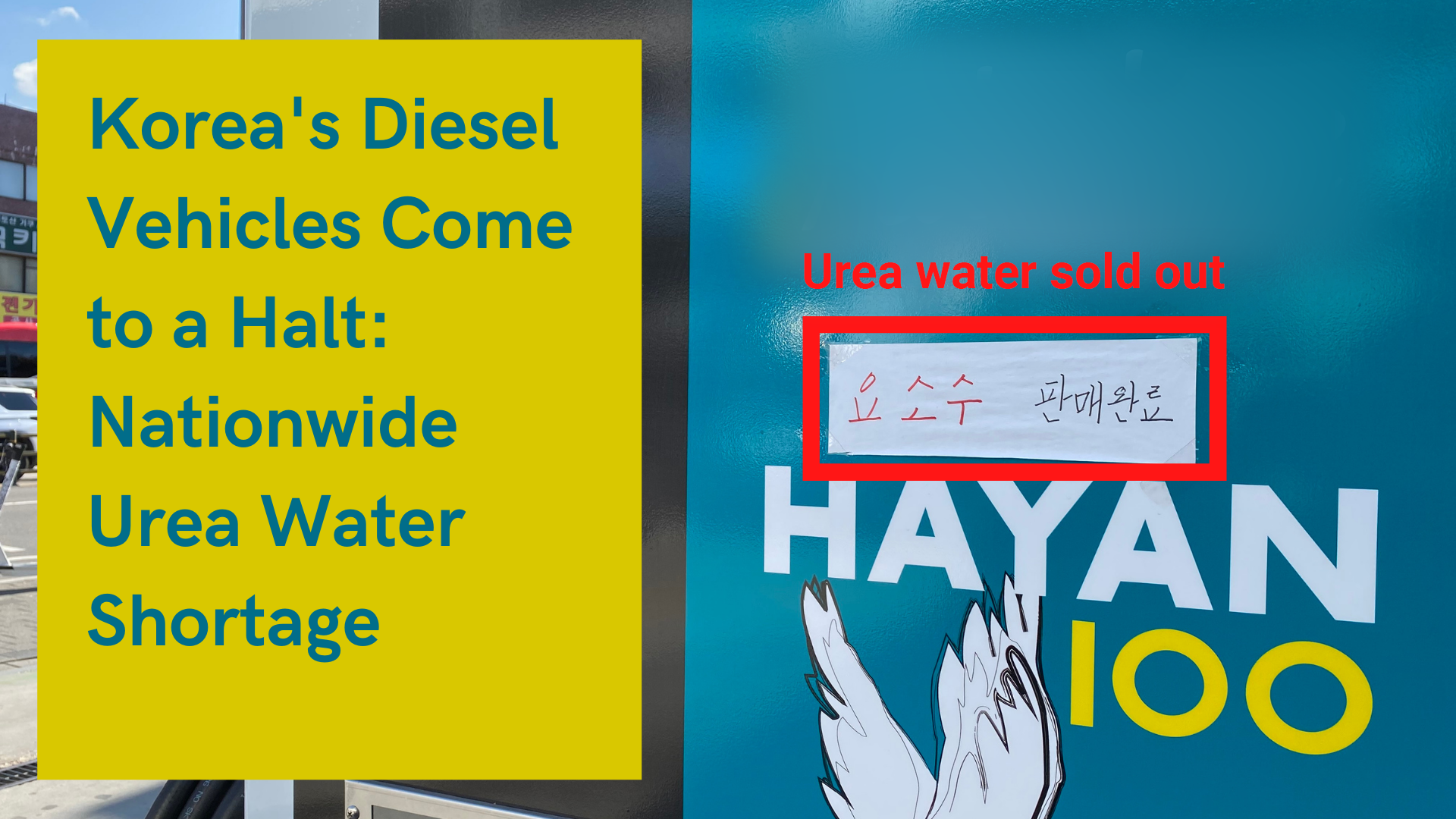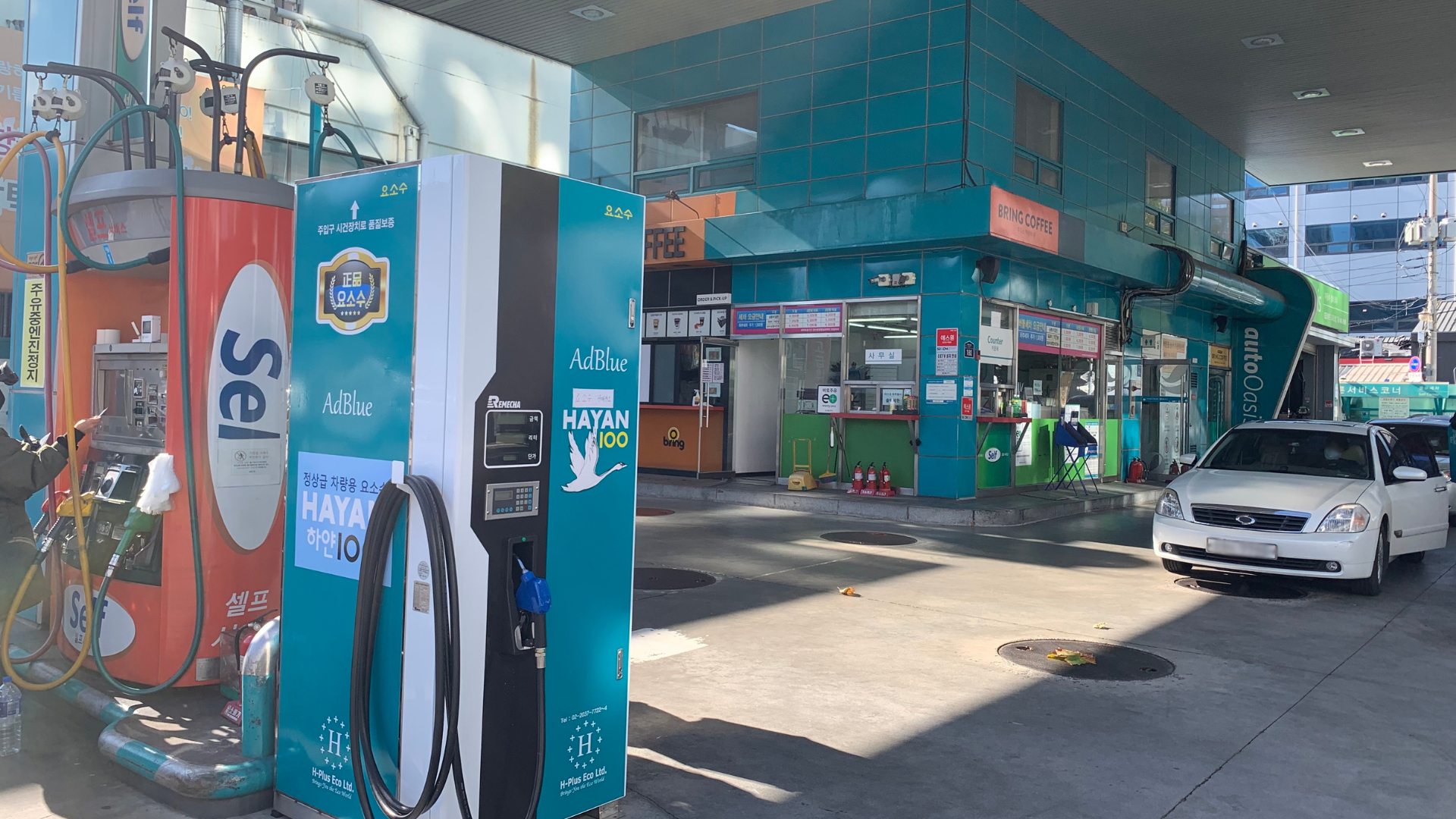FORMAX
After All, Electric Vehicle is the Future.
Korea’s Diesel Vehicles Come to a Halt: Nationwide Urea Water Shortage
November 17, 2021

Yes, I know you would be thinking that I am saying the obvious. However, the recent shortage of urea water, also known as diesel exhaust fluid in Korea, raises the question of whether continued reliance on urea water solution is the right way for a sustainable future.
The background behind the shortage of diesel exhaust fluid is the Chinese government’s ban on exporting urea solution due to the country’s shortage of coal and electricity. Since Korea had been sourcing 97% of urea water from imports from China, it soon faced the nationwide shortage of diesel exhaust fluid.
The reason that this shortage is fatal for the country is that significant amounts of ambulances, buses, and cargo trucks run on diesel fuel and require urea solutions. This includes 90% of the ambulance vehicles owned by the national fire agency, 77% of buses in rural regions, and 61.8% of ambulances owned by private hospitals and organizations.

A gas station located in Seoul
But these are just part of the 10 million diesel cars out of 26 million cars in Korea. Another main reason for the heavy reliance on urea water is the high preference for diesel cars among individual car owners and drivers. Behind the nationwide popularity of diesel cars is automobile companies’ marketing and the government’s promotion of diesel cars in the late 2000s, publicizing them as “eco-friendly” cars for emitting less carbon dioxide than gasoline cars. However, they are just as harmful, if not more, to the environment as gasoline cars, since they are one of the main sources of nitrogen oxide and particulates.
Only 40% of the 10 million diesel cars follow the Euro VI emission standards, which means that 4 million diesel cars require urea water solution to reduce the pollutant chemicals, and the other 6 million diesel cars roam emitting far more air pollutants, especially nitrogen oxides and hydrocarbons. Yet the current state is that Korea is struggling to secure enough urea water for those 40% of the diesel cars. The Korean government has taken actions to diversify the suppliers and fortunately, many countries including Mexico and Russia have provided their urea solutions during the past few days. On 11th it was reported that the government had succeeded in importing 18,700t of urea from China, although this does not mean that China will resume exporting their natural resources. 2-3 months’ worth of urea has been secured, but in the long term, such shortage, or even worse, is bound to outbreak again unless a more fundamental action is taken.
Meanwhile, the current global automotive trend is carbon neutrality; EU has announced a ban against selling gasoline fueled cars and diesel fueled cars starting from 2035, and a number of named car brands have joined in with plans for new electric models and other alternative engines such as fuel cells.
Nationwide shift of vehicle choices among individual car drivers and among the commercial and public sector is needed both in terms of economy and the environment. It is a positive change to see the rate of EV sales rising in the country, but it is far less than enough. Of course, an immediate complete transition from fossil fuel to renewable energy would be impossible, but the state of affairs calls for prompt collective action to reduce reliance on diesel fuels. This could be an important turning point for Korea to accelerate the transition from diesel cars into electric vehicles and other sustainable fuel vehicles.
The background behind the shortage of diesel exhaust fluid is the Chinese government’s ban on exporting urea solution due to the country’s shortage of coal and electricity. Since Korea had been sourcing 97% of urea water from imports from China, it soon faced the nationwide shortage of diesel exhaust fluid.
The reason that this shortage is fatal for the country is that significant amounts of ambulances, buses, and cargo trucks run on diesel fuel and require urea solutions. This includes 90% of the ambulance vehicles owned by the national fire agency, 77% of buses in rural regions, and 61.8% of ambulances owned by private hospitals and organizations.

A gas station located in Seoul
But these are just part of the 10 million diesel cars out of 26 million cars in Korea. Another main reason for the heavy reliance on urea water is the high preference for diesel cars among individual car owners and drivers. Behind the nationwide popularity of diesel cars is automobile companies’ marketing and the government’s promotion of diesel cars in the late 2000s, publicizing them as “eco-friendly” cars for emitting less carbon dioxide than gasoline cars. However, they are just as harmful, if not more, to the environment as gasoline cars, since they are one of the main sources of nitrogen oxide and particulates.
Only 40% of the 10 million diesel cars follow the Euro VI emission standards, which means that 4 million diesel cars require urea water solution to reduce the pollutant chemicals, and the other 6 million diesel cars roam emitting far more air pollutants, especially nitrogen oxides and hydrocarbons. Yet the current state is that Korea is struggling to secure enough urea water for those 40% of the diesel cars. The Korean government has taken actions to diversify the suppliers and fortunately, many countries including Mexico and Russia have provided their urea solutions during the past few days. On 11th it was reported that the government had succeeded in importing 18,700t of urea from China, although this does not mean that China will resume exporting their natural resources. 2-3 months’ worth of urea has been secured, but in the long term, such shortage, or even worse, is bound to outbreak again unless a more fundamental action is taken.
Meanwhile, the current global automotive trend is carbon neutrality; EU has announced a ban against selling gasoline fueled cars and diesel fueled cars starting from 2035, and a number of named car brands have joined in with plans for new electric models and other alternative engines such as fuel cells.
Nationwide shift of vehicle choices among individual car drivers and among the commercial and public sector is needed both in terms of economy and the environment. It is a positive change to see the rate of EV sales rising in the country, but it is far less than enough. Of course, an immediate complete transition from fossil fuel to renewable energy would be impossible, but the state of affairs calls for prompt collective action to reduce reliance on diesel fuels. This could be an important turning point for Korea to accelerate the transition from diesel cars into electric vehicles and other sustainable fuel vehicles.



